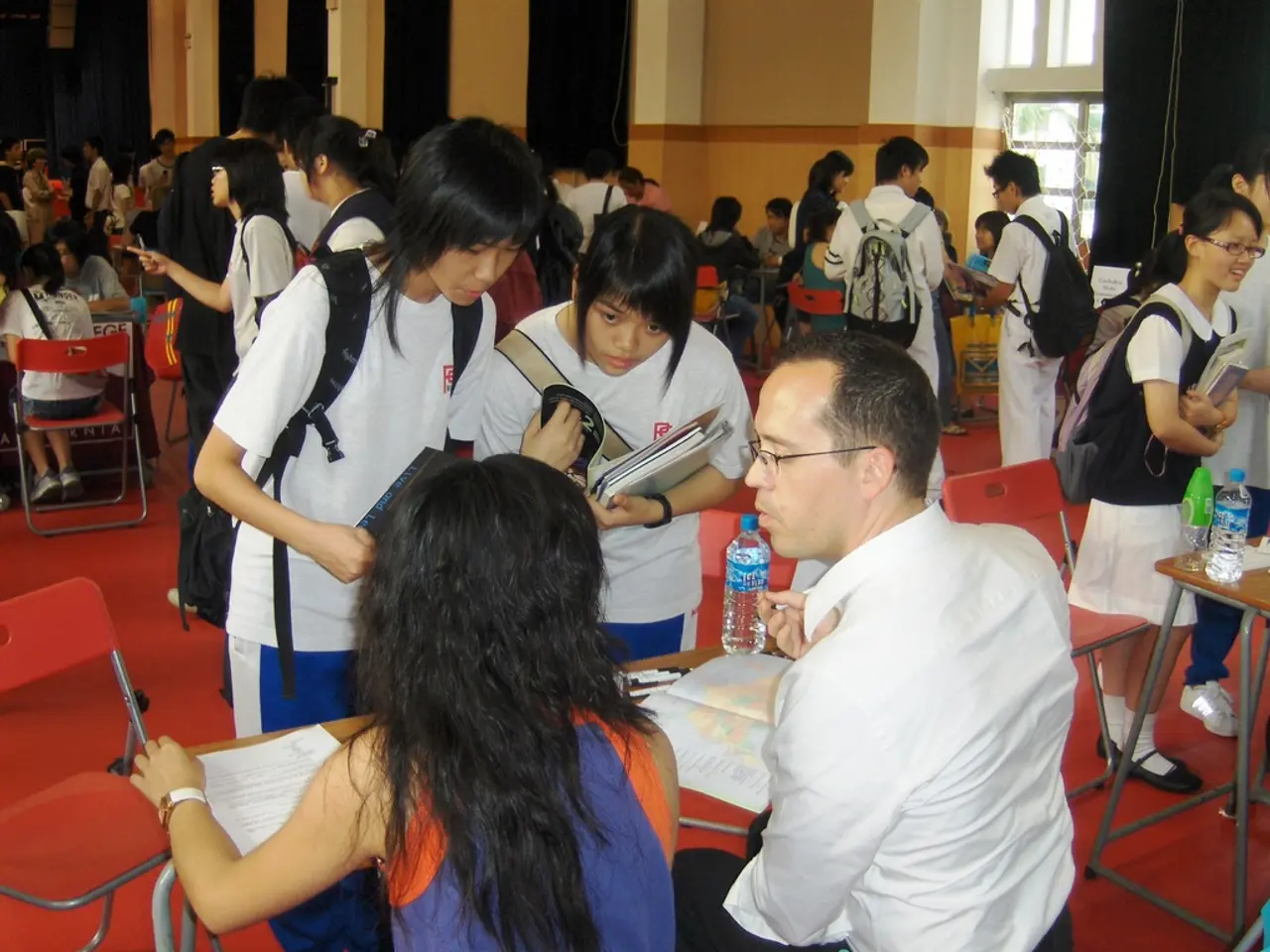Sex education assessment reveals disparities: survey results
In a bid to address the lack of adequate sexual education and variations in understanding among fifth and sixth-graders in Taiwan, several targeted strategies have been proposed. The Child Welfare League Foundation and the Taiwan Gender Equity Education Association recently conducted a nationwide survey, revealing that more than half of the students answered fewer than seven out of 11 questions correctly about sexual knowledge, with no student answering all questions correctly [1].
The first strategy involves **standardizing and enhancing the curriculum content**. While Taiwan's Gender Equity Education Act (GEEA) mandates sex education in elementary and middle schools, gaps remain, particularly for younger students. The curriculum needs to be updated to cover comprehensive, age-appropriate sexual health topics beyond just biology, including emotional health, relationships, consent, and respect for diversity, including LGBTQ issues [1]. Given Taiwan's progressive stance on same-sex marriage, despite some social resistance, it is crucial to address these issues effectively.
Secondly, **consistent teaching methods** are essential. Variation in knowledge often stems from inconsistent teaching approaches. To address this, teacher training programs should be strengthened to equip educators with effective, standardized methods to deliver sexual education confidently and sensitively [2]. This can reduce disparities and ensure all students receive accurate information regardless of their school or teacher.
Thirdly, **utilizing technology and online programs** can supplement traditional teaching. Evidence from nearby regions like China shows that online sexual and reproductive health education programs for primary students can be effective [3]. Taiwan could develop or adopt interactive, age-appropriate digital resources to engage students and provide consistent information accessible outside of school.
Fourth, **engaging parents and communities** is crucial, especially around topics like LGBTQ inclusion, where societal conservatism poses challenges. Creating parental engagement initiatives and community education programs can help alleviate misconceptions, build support, and create a more accepting environment for comprehensive sex education [1].
Lastly, **early and continuous education** is key. Given that more than 20% of fifth and sixth-graders have been in romantic relationships yet over half lack adequate sexual knowledge [2], sex education should start earlier and continue progressively through school years to address evolving needs.
By standardizing curriculum, improving teacher training, incorporating digital tools, engaging families, and ensuring early, sustained education, Taiwan can better address knowledge gaps and variations in sexual education among fifth and sixth-graders effectively. It is important to remember that people under 16 in Taiwan do not have the legal right to sexual autonomy [1]. The organizations have suggested that education authorities should further enhance the curriculum and increase teaching hours for gender equality education, with teaching materials based on "real-life contexts" [1]. Approaching conversations about sex with openness, starting from children's questions and daily experiences, significantly improves children's sexual knowledge and attitudes [1].
References: [1] Huang Yun-hsuan, Child Welfare League Foundation's Organizational Development Division head, and Taiwan Gender Equity Education Association deputy chairman Yuan Wang made these statements at a news conference in Taipei. [2] The survey, conducted between March and April, collected responses from 1,426 students. [3] The survey did not find any students who answered all questions correctly about sexual knowledge, and fewer than 50% of students had a clear recollection of what they were taught in gender equality education.
The first sentence could be: "For effective personal growth and education-and-self-development, it is essential to enhance curriculum content, ensuring it covers comprehensive sexual health topics for fifth and sixth-graders."
The second sentence could be: "To ensure personal growth and continuous education on this crucial topic, it is important to engage parents and communities, addressing societal challenges and fostering support for comprehensive sex education."




